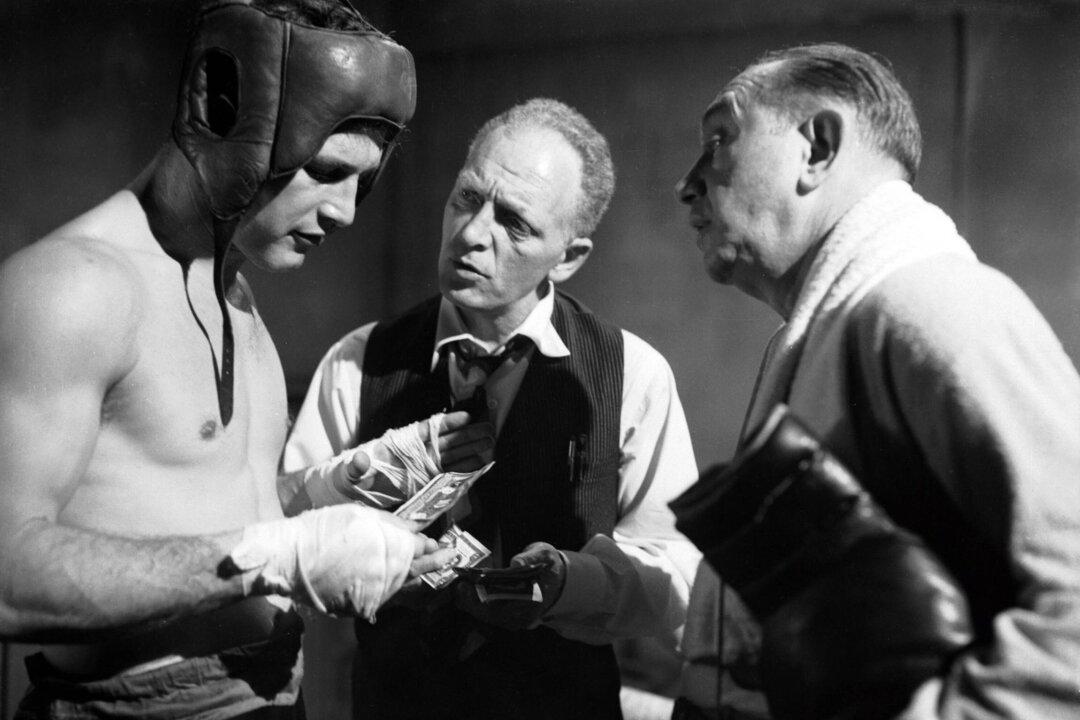PG | 1 h 53 min | Drama | 1956
Boxing fans fancying generous close-ups or tantalizing slow-motion shots of fighters may be disappointed with Robert Wise’s film. Based on real-life boxer, Rocky Graziano and his eponymous biography, this fictionalized adaptation is more about his fights outside the middleweight ring: his rise from poverty and hooliganism, and how his caring family tames his self-destructive side.





